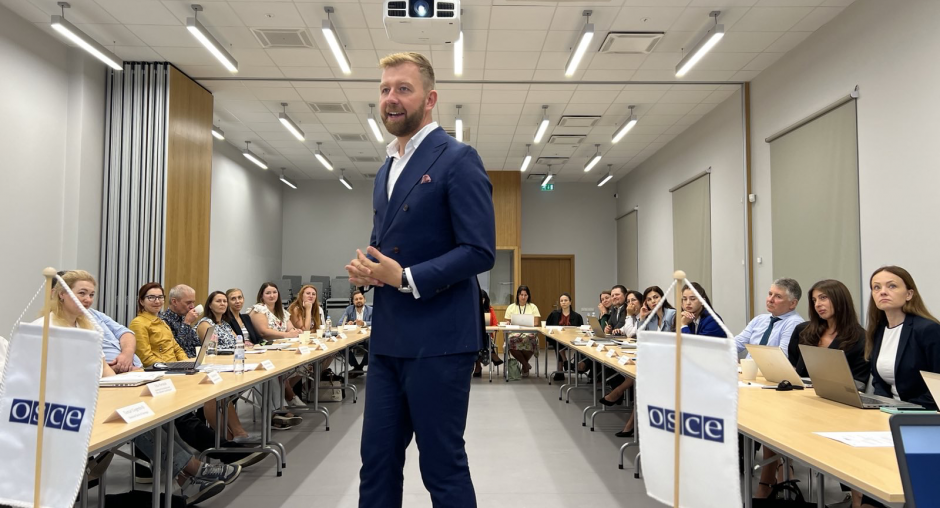Bank of Latvia hosts OSCE advanced workshop on virtual asset regulation

From September 4 to 6, the OSCE and the Bank of Latvia co-hosted a workshop on "Navigating the Virtual Asset Landscape". Bringing together regulators and experts from Latvia, Armenia, Georgia, Moldova, and Ukraine, the workshop addressed the challenges of regulating virtual assets and blockchain technologies.
Key discussions focused on the European Markets in Crypto-Assets (MiCA) regulation and its importance for fostering innovation while also ensuring transparency and compliance. The workshop provided insights into adapting European regulations to the specific needs of participating countries.
Participants also explored best practices for licensing Virtual Asset Service Providers (VASPs), with Georgia’s experience highlighted as a valuable example. These discussions underscored the need for regional co-operation in shaping effective regulatory frameworks for the growing crypto industry.
The workshop also highlighted the critical role of anti-money laundering (AML) measures in the virtual asset space. Participants shared strategies for ensuring financial institutions can safely onboard clients exposed to virtual assets while still maintaining regulatory compliance.
By facilitating collaboration between regional regulators and the private sector, the workshop supported the OSCE participating States in developing robust policies that align with existing international standards. The insights gained during the workshop will support ongoing efforts to securely and transparently integrate virtual assets into traditional financial systems.
This workshop was organized within the framework of the extra-budgetary project “Innovative Policy Solutions to Mitigate Money-Laundering Risks of Virtual Assets”, implemented by the Office of the Co-ordinator of OSCE Economic and Environmental Activities. The project is financially supported by Germany, Italy, Poland, Romania, the United Kingdom and the United States.
